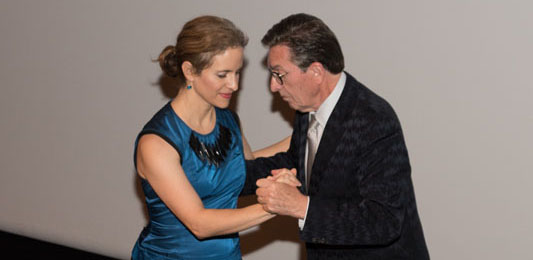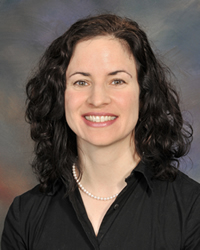Madeleine Hackney, PhD’s DREAMS (Developing a Research Participation Enhancement and Advocacy Training Program for Diverse Seniors) project grew out of an ongoing problem in clinical research. Older adults with low socioeconomic status and/or from racial or ethnic minority populations are historically underrepresented in research because of multiple barriers, including distrust of the research community, difficulties with access, ageism, health literacy challenges, and strict trial inclusion criteria.
As our population ages, this under-representation can cause clinical knowledge gaps that can limit the effectiveness of health care. Increased patient input into–and understanding of–research focused on older adults will result in a more robust body of knowledge on their needs and help us to provide quality care to the aging U.S. population. But how can researchers break down the existing barriers and build relationships with these underrepresented populations? Dr. Hackney had some ideas.
Dr. Hackney decided to use the tango to treat mobility problems in people with Parkinson’s disease. While some of the participants danced, those assigned to the control group attended educational sessions on various health issues. The interactive educational sessions were so popular, both with learners and the teachers (medical students and faculty from the Emory University School of Medicine), that Dr. Hackney suspected they could serve to bring together a group of diverse seniors for the DREAMS project. Funding from the Patient Centered Outcomes Research Institute (PCORI) gave her the chance to empirically demonstrate her theory.
Dr. Hackney’s DREAMS project had three objectives:
- To build trust between older adults and researchers
- To provide a pool of interested, educated individuals who could become research advocates
- To increase opportunities for diverse seniors to influence, participate in, and collaborate in all phases of the research process
To achieve these goals, Dr. Hackney and her team delivered their DREAMS project in two parts. In part one, the team recruited seniors from seven communities representing a wide range of socioeconomic and racial/ethnic categories to attend an eight-week lecture series presented by Emory faculty and medical students. In part two, with the help of some generous Emory faculty, the team would train selected seniors in a course to prepare them to serve as research advocates in their own communities.
DREAMS was a success! By the time they completed part two in May of 2016, Dr. Hackney’s team had trained roughly 30 seniors to act as research advocates in their own communities. Some of these “DREAMS Team” members have already been written into grants. Dr. Hackney says, “Participants were very enthusiastic. They felt valued and listened to in a society that doesn’t always listen to seniors. They had the chance to talk to medical professionals and faculty on a peer-to-peer basis and get their questions answered.”
The diversity of the seniors can be heard in their reflections on the DREAMS experience. One senior said, “I have really enjoyed these presentations, and I am grateful for the expert info and knowledge that have been imparted. As I review the slides and notes taken, I know I’ll be making positive changes to my health routines. And the opportunity to ask questions is priceless. Thank you.”
Another participant had this to say: “There was a lot I learned about things I had never heard of. The presentations were good. In eight weeks, we learned a lot about the body.”
Dr. Hackney hopes that all of the DREAMS participants will take their enthusiasm back to their communities and encourage their friends to participate in research, leading to improved quality of care for all seniors. The DREAMS project staff is actively looking for opportunities for every DREAMS team member. If you would like to include a DREAMS trained advocate in your research project, please contact Dr. Hackney at mehackn@emory.edu.
Learn more about Dr. Hackney’s work with the tango and Parkinson’s patients
Related Links
- Emory Division of General Medicine and Geriatrics
- Emory University Department of Medicine
- Self-care is the caregiver’s most critical task
- VIDEO: Emory Center for Health in Aging
If you are interested in investing in research, clinical care, and/or education within the Emory University School of Medicine’s Division of General Medicine and Geriatrics, learn how you can help.



Be the first to comment on "Bringing Diversity to Clinical Research"